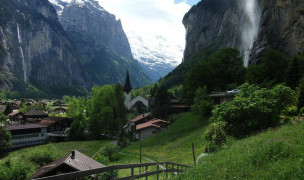 14 Terms
14 TermsHome > Terms > Armenian (HY) > միջավայրի տնտեսագիտություն
միջավայրի տնտեսագիտություն
Some people think capitalism is wholly bad for the environment as it is based on consuming scarce resources. They want less consumption and greater reliance on renewable resources. They oppose free trade because they favor self-sufficiency (autarky), or at least so-called fair trade, and because they believe it encourages poorer countries to destroy their natural resources in order to get rich quick. Although few professional economists would share these views, in recent years many attempts have been made to incorporate environmental concerns within mainstream economics. The traditional measure of GDP incorporates only those things that are paid for; this may include things that reduce the overall quality of life, including harming the environment. For instance, cleaning up an oil spill will increase GDP if people are paid for the clean-up. Attempts have been made to devise an alternative environmentally friendly measure of national income, but so far progress has been limited. At the very least, traditional economists increasingly agree that maximizing GDP growth does not necessarily equal maximizing social welfare. Much of the damage done to the environment may be a result of externalities. An externality can arise when people engaged in economic activity do not have to take into account the full costs of what they are doing. For instance, car drivers do not have to bear the full cost of making their contribution to global warming, even though their actions may one day impose a huge financial burden on society. One way to reduce externalities is to tax them, say, through a fuel tax. Another is prohibition, say, limiting car drivers to one gallon of fuel per week. This could result in black markets, however. Allowing trade in pollution rights may encourage “efficient pollution”, with the pollution permits ending up in the hands of those for which pollution has the greatest economic upside. As this would still allow some environmental destruction, it might be unpopular with extreme greens. There may be a case for international eco markets. For instance, people in rich countries might pay people in poor countries to stop doing activities that do environmental damage outside the poor countries, or that rich people disapprove of, such as chopping down the rain forests. Choices on environmental policy, notably on measures to reduce the threat of global warming, involve costs today with benefits delayed until the distant future. How are these choices to be made? Traditional cost-benefit analysis does not help much. In measuring costs and benefits in the far distant future, two main things seem to intervene and spoil the conventional calculations. One is uncertainty. We know nothing about what the state of the world will be in 2200. The other is how much people today are willing to pay in order to raise the welfare of others who are so remote that they can barely be imagined, yet who seem likely to be much better off materially than people today. Some economists take the view that the welfare of each future generation should be given the same weight in the analysis as the welfare of today’s. This implies that a much lower discount rate should be used than the one appropriate for short-term projects. Another option is to use a high discount rate for costs and benefits arising during the first 30 or so years, then a lower rate or rates for more distant periods. Many studies by economists and psychologists have found that people do in fact discount the distant future at lower rates than they apply to the near future.
- Szófaj: noun
- Szinonimák:
- Blossary:
- Ipar/Tárgykör: Economy
- Kategória: Economics
- Company: The Economist
- Termék:
- Betűszó/Rövidítés:
További nyelvek:
Mit szeretne mondani?
Terms in the News
Featured Terms
phylum placozoa
Macroscopic, flattened marine animals, composed of ventral and dorsal epithelial layers enclosing ...
phylum cnidaria
Cnidarians. Hydras, hydroids, jellyfish, sea anemones, and corals. Free-swimming or sessile, with ...
share a term with millions
Share a term with millions of users around the world and increase your online visibility.Share a ...
oak
Genus native to the Northern Hemisphere with spirally arranged leaves, catkins for flowers and ...
Everest
The last but not least mount Everest. The Earth's highest mountain, with a peak at 8,848 metres ...
aglaonema
Genus of about 20 species of usually rhizomatous, evergreen perennials from tropical forest in Asia. ...
Robojelly
Robojelly is a hydrogen-powered robot desgined in the United States that moves through the water ...
Ferdinand Porsche
Ferdinand Porsche (3 September 1875 – 30 January 1951) was an Austrian-German automotive engineer ...
Marzieh Afkham
Marzieh Afkham, who is the country’s first foreign ministry spokeswoman, will head a mission in east ...
define1
Share a term with millions of users around the world and increase your online visibility.Share a ...
Beküldő
Featured blossaries
badr tarik
0
Terms
57
Szójegyzékek
2
Követő
The Most Beautiful and Breathtaking Places in the World
 14 Terms
14 Terms
Browers Terms By Category
- Cheese(628)
- Butter(185)
- Ice cream(118)
- Yoghurt(45)
- Milk(26)
- Cream products(11)
Dairy products(1013) Terms
- Digital Signal Processors (DSP)(1099)
- Test equipment(1007)
- Semiconductor quality(321)
- Silicon wafer(101)
- Components, parts & accessories(10)
- Process equipment(6)
Semiconductors(2548) Terms
- Festivals(20)
- Religious holidays(17)
- National holidays(9)
- Observances(6)
- Unofficial holidays(6)
- International holidays(5)
Holiday(68) Terms
- Pesticides(2181)
- Organic fertilizers(10)
- Potassium fertilizers(8)
- Herbicides(5)
- Fungicides(1)
- Insecticides(1)
Agricultural chemicals(2207) Terms
- Action toys(4)
- Skill toys(3)
- Animals & stuffed toys(2)
- Educational toys(1)
- Baby toys(1)




